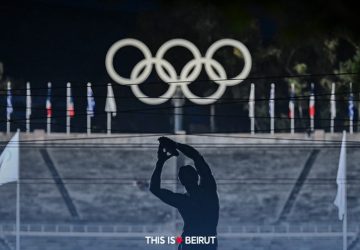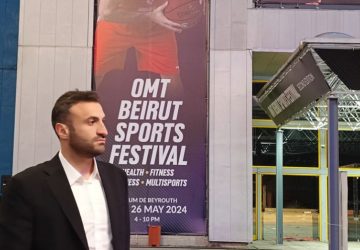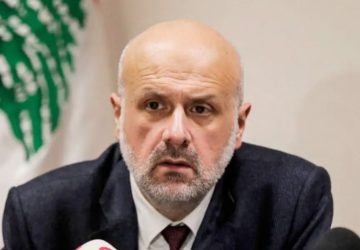Listen to the article
The French initiative to resolve the deadlock in the Lebanese presidential election is still underway, with Jean-Yves Le Drian, the personal representative of President Emmanuel Macron, scheduled to visit Beirut in September. According to clarifications collected by This is Beirut from a French diplomatic source, it appears that Paris has taken note of the opposition’s criticism on several fronts and is actively working to realign the overall French approach concerning the presidential issue.
Recently criticized in form and substance by parties that were considered France’s closest allies until just a few months ago, the presidential initiative led by Jean-Yves Le Drian, personal representative of President Emmanuel Macron for Lebanon, is still in play.
Paris continues its efforts to “establish a framework to encourage consensus” among Lebanese actors to put an end to the presidential deadlock, a full ten months after the beginning of the vacancy at the head of State. Its approach within this context remains coordinated with the four other member countries of the Group of Five (the United States, Saudi Arabia, Egypt, and Qatar).
Collected by This is Beirut from a French diplomatic source, these clarifications contradict reports about divergent viewpoints among the Quintet members, and about the imminent conclusion of Le Drian’s mission.
The Letter
As per the aforementioned source, the uproar sparked by the Lebanese opposition against the letter sent by the French envoy on August 15 (requesting MPs to answer two specific questions regarding the profile and priorities of the upcoming head of State) should be understood within the framework of “political game”.
And for a good reason: the French embassy in Beirut had “previously informed” the parliamentary blocs about Le Drian’s intention to send this correspondence, and according to the aforementioned source, none of them had indicated that it would cause a problem.
Regarding the utility of requesting written responses to questions that were already communicated verbally by Le Drian’s interlocutors, it “precisely lies in the fact that the answers had not been obtained”, as per the aforementioned source.
As explained by Le Drian, the French approach seeks to “establish a framework to promote consensus.” According to the diplomatic source, “developing a framework” involves formalizing aspects in order to identify the most basic common ground and developing a roadmap that would gain unanimous approval and serve as a comprehensive plan for the future president.
This underscores the importance of having written responses, as it facilitates a comparative analysis and offers insights into aspects that might not be as evident as some MPs or blocs believe, as assessed by Paris.
If this is the case, what was the underlying purpose of Le Drian’s tireless note-taking during the meetings in Beirut? “Certain parties did not delve into details, while others sought internal discussions before giving their answers”, according to the source.
Quintet Coordination
Addressing analyses that depict divisions within the Quintet, notably between France on one side and Saudi Arabia and Qatar on the other, the source reminds that Le Drian had met with the Qatari Prime Minister and the Saudi Foreign Minister to present his approach.
According to the source, the Quintet continues its top-level coordination; however, the involved parties “won’t evaluate the situation every two to three weeks, nor discuss every single step.”
Nevertheless, France “has no objections to the diplomatic approaches and actions of other countries, which can occur in a complementary way”, and within this context, potential “campaigns” that may be conducted to support some candidates, according to the source.
As per the diplomatic source, the Qataris are “actively engaged” in Lebanon, without going so far as to characterize it as a “Qatari initiative”. In any scenario, there is no Qatari disagreement with the French initiative, according to the same source.
Dialogue and Open Sessions
France is well aware of the opposition’s rejection of the suggested comprehensive dialogue, as called for by the March 8 alliance.
It’s important to highlight that 31 opposition MPs released a statement last week, commending Le Drian’s initiative but dismissing the prospect of a dialogue. They emphasized that the primary focus should be on electing a head of State who will oversee a national dialogue regarding Hezbollah’s weaponry.
According to the French diplomatic source, the proposed idea “differs from prior dialogues, such as the Doha Agreement, and is not about extensive bargaining. Instead, it involves a tightly focused exchange specifically addressing the presidential matter.” This strategy would be preceded by one-on-one talks between the envoy and each parliamentary bloc, encompassing all the actors met by Le Drian.
Building upon the envoy’s invitation to the MPs, as presented during his meetings with them in July, the proposed dialogue is meant to be followed by an open electoral process until a president is elected. Has the Parliament Speaker Nabih Berri committed to conducting these open sessions, given that MPs from his Amal movement, along with their allies from Hezbollah and other March 8 blocs, have caused a lack of quorum at the end of the initial round of all electoral sessions held so far? “That is our proposition, that is our endeavor, and it hinges on all parties involved”, according to the source.
Reevaluation in September
While certain opposition MPs have announced their intention not to answer Le Drian’s questions, his return remains scheduled for September, although the specific date is yet to be confirmed.
“We will reevaluate the situation in September, depending on the context and the feedback we receive”, according to the source.
We recall that Le Drian has already visited Beirut twice, initially in June and subsequently in July, following the meeting of the Quintet in Doha.
The Christian Agreement
Concerning the choice of a presidential candidate, France’s standpoint is crystal clear: “Le Drian’s approach is devoid of preconceptions. We do not endorse any candidate. We are presenting a framework that implies a certain neutrality”.
After endorsing “Sleiman Frangieh for the presidency and Nawaf Salam for prime minister” for several months, Paris has acknowledged that this equation lacks acceptance among a considerable number of Lebanese MPs, particularly those of the opposition, and seems to have disengaged from it.
France has shifted away from the approach of presenting a single option. According to the aforementioned source, the previous one was tabled to prompt all parties to take a clear position. The objective was not to push it forward without a certain level of Christian consensus, which was absent.
Despite facing criticism from the parliamentary opposition and Maronite Patriarch Bechara Rai regarding the episode of Le Drian’s letter, France remains committed to its initiative and looks forward to a “reevaluation” of the situation in September.
Nevertheless, the ball now lies in the Lebanese camp. “We put forth a proposal for mediation and facilitation. If the Lebanese do not wish to embrace this mission, it will come to an end”, according to the source.





